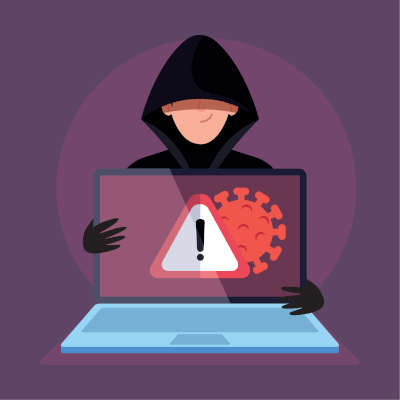ImageSys LLC Blog
I want you to step out of your role as a business owner for a moment and see yourself once again as the average consumer. How concerned are you that so many businesses have collected and are now storing your personal data, and that you have no control over its privacy? If you feel at all uneasy, you’re not alone… 87 percent of Americans feel that data privacy is a human right in these modern times.
Held from Sunday, January 5 to Friday, January 10, 2020, this year’s Consumer Electronics Show took place in Las Vegas, Nevada. This event is an annual opportunity for startups and major companies alike to showcase their newest consumer-focused products. However, this year’s show has many security experts expressing sincere and legitimate concerns.
As the data that you store on your business’ computers is valuable, it is inherently a desirable target to cybercriminals and scammers alike. This means that it is in your best interest to have comprehensive protections in place to protect this data from their activities. Let’s go over exactly what a firewall is, and how they make up a critical portion of your business’ defenses.
Most of us have a love-hate relationship with social media. A particularly controversial platform we discuss quite a bit on our blog is Facebook. Privacy is a monumental concern in the digital age, so today we thought we would go over settings you might not even realize are enabled on your Facebook profile.
If you haven’t read part one of our Facebook privacy blog, it wouldn’t hurt for you to go back and read that one first. Today, we will be building off of that blog, teaching people how to properly configure their accounts to give them the best chance to lock down their private information.
Of course, Facebook, being one of the predominant web-based services in the world, has a checkered history when it pertains to individual’s privacy. In fact, I think a fair share of its ongoing troubles when it comes to individual privacy have a lot to do with their overwhelming success.
Would you consider Facebook to be popular? It’s an interesting question. It’s like asking people if they think McDonalds is popular. These days Facebook is used by one in every four people in the world, yet there are very few people that will actively come to the social media giant’s defense, let alone admit to spending nearly half of their time online on the site (either via an Internet browser or via an app).
When over 16 million people are scammed out of over $16 billion, there’s likely some type of problem that needs to be addressed. Famous con artist, Frank Abagnale, the man immortalized in Steven Spielberg’s Catch Me If You Can, a movie that was based off his own memoir, has been working as a security consultant with the Federal Bureau of Investigation for over 45 years. In that time, he has become an expert in cybersecurity and fraud prevention.
Data Privacy is a huge topic these days. We often talk about data security when it comes to protecting your organization’s information, but we often don’t go into a lot of depth when it comes to protecting an individual’s information. It’s important to understand how personal information moves around, so you know what you are up against when it comes to protecting your privacy online. This post is going to be a bit of a deep rabbit hole, but I really want to shine some light on the subject for my readers.
In the dog days of summer, the news media started running a story about how Google’s location tracking services continue to track people even after they order their mobile device’s OS to quit it. A researcher from Princeton proved these claims by traveling through New York and into New Jersey after turning location services off on for hi Android smartphones, only to be tracked through all the Interstate travel. We’ll take an in-depth look at why Google seemingly knows exactly where you are if you want them to or not.
The past few years certainly haven’t been very good for Facebook. After going public in 2012, Facebook acquired several organizations and applications to make waves in the market. The company is now responsible for a considerable amount of data, which has led to several data breaches, exacerbating the media and creating skepticism toward the social media giant.
As technology advances and improves at an exponential rate, it is little wonder that today’s youth are growing up with a closer relationship to technology than any other generation before them. While this has opened up many beneficial opportunities for them, it can also be the source of many serious issues without the proper supervision.
Most users are aware that their browsers offer a “secure” browsing experience. Google Chrome has Incognito mode, Microsoft’s Edge browser allows you to surf the Internet “InPrivate,” and Apple’s Safari offers Private Browsing as well. The trouble is, these “secure” browsing options aren’t actually all that secure. For today’s tip, we’ll discuss ways to actually keep your Internet browsing private.
It is our hope that you are aware of how much of a risk spyware can pose to your business. Your business generates, collects, and leverages truly considerable amounts of data each day that is intended for your business only. While spyware that is introduced by a hacker is clearly a bad thing, what if the manufacturer of the device installed a program that pulled data from your machine?
Passwords are everywhere. It seems that every account requires a password, in addition to the devices we use to access these accounts. This is a good thing, as it only helps to increase security - assuming that the password is strong. After all, a password that anyone can guess can hardly be called a password at all.



















